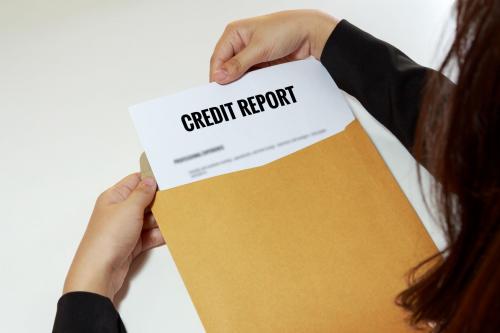Have you received your economic impact payment, also known as a stimulus check? If so, you are probably thinking about the best way to use it. People who have been severely affected by COVID-19 will likely need to use it right away. The funds could cover food, housing payments, and other emergency expenses. On the other hand, those who have not felt an impact may invest or donate the funds. But many people are in the middle. They have felt the financial pinch from COVID-19, but are not in dire straits. For this group, the funds can serve as an important backstop, cushioning their savings and providing a reserve to dip into in the coming weeks and months. If that sounds like you, here are 10 tips for how to make that money last as long as possible.
Shift Your Mentality
First of all, you will want to maintain the right perspective. Even as the pandemic eases in the coming months, remember that the Unites States economy is in uncharted territory. Prepare for the unexpected, and think of your budget as being an emergency budget. Even if the situation gets better and the economy holds steady, there is nothing wrong with being over-prepared, and you will be thankful that you took precautions either way.
Have a Starting Point
Make sure you have a written budget. This monthly expense planning tool can help you get started. You will want to think about how much of your monthly income is going toward each major spending category. For example, experts usually recommend that no more than 25 percent of your budget goes toward housing, and that food and utilities not count for more than an additional 25 percent. You might even try the simple 50/30/20 approach. Whatever you pick, try to make a plan that is even more conservative than the recommendations. If you have already been budgeting then look at how much you have been spending in each category, and try to reduce the amounts significantly. For example, if fifteen percent of your monthly income has been going toward food, you might try to bring that down to ten percent or less.
Avoid or Minimize Meals Out
Speaking of food, it is a large portion of everyone’s budget. However, it is also one of the easiest expenses to cut back. Eating out costs significantly more than making meals at home. Yes, eating out can be a way to contribute to the small businesses in your community. But if you are trying to keep your own finances afloat, you shouldn’t overdo it. Try to limit how much you spend at restaurants.
Clean out Your Pantry
Going to the grocery store is a challenging process during the COVID-19 era, and the expenses add up. But you may have a freezer or pantry full of food. This could be the perfect time to use that food strategically instead of buying more. Maybe there are a few ingredients you need to pick up every few weeks (like milk). But try to stay home and prepare the food you already have. You can even make this a fun challenge to see how close you can come to emptying your pantry entirely.
Cut other Grocery Luxuries
While you are limiting trips to the grocery store, try to eliminate any luxury items. This might mean skipping the name brand items and only buying generic products, giving up certain cuts of meat, and taking a break from alcohol. These can be some of the most expensive items on your grocery list, and cutting them for a while will make a noticeable difference.
Reduce Utilities
Utilities are another huge expense. Heading into May, we are almost to the time of year that many people run their air conditioning all day long. Try to avoid this to save on your electric bill. Open windows, wear lighter clothing, or run fans. Taking these measures might be a little less comfortable, but could reduce your bill.
Also, now is a good time to reassess your home Internet and television subscriptions. If you subscribe to multiple streaming services, consider reducing it to one. You might also reduce your Internet package by selecting a slower connection speed. These changes will add up and save you a good chunk of change.
Cut back on entertainment
COVID-19 brought many forms of entertainment to a halt. No more trips to theaters, or concerts, or skating rinks, and so forth. However, it is still easy to get caught up in entertainment expenses at home. You might want to order new video games, or pay to stream a newly released movie. You may want to purchase items on Amazon to entertain yourself or your kids. Instead, try focusing on the things you already have. What do you already own or already pay for that can provide entertainment for free?
Here’s one simple list for free family entertainment ideas at home.
Cut Personal Spending
Like with entertainment, a lot of personal spending has already been cut, given that salons and similar businesses have been closed in most locations. Many of us aren’t used to going this long without a haircut, and have experimented with different forms of quarantine hair. Even once restrictions are lifted, you don’t have to rush back to the barbershop, nail salon, masseuse, or similar service. Instead, experiment with what you can do at home. See what new habits and methods you can find for self-care that are affordable and easy to do. Reducing these monthly, or even weekly, expenses can create huge savings moving forward.
Consider Stopping or Reducing your Giving
Donating money is a very personal decision. It is also incredibly important in times such as these, when many businesses and individuals are struggling financially and physically. Many nonprofit organizations are on the frontlines of helping people recover. If you can continue your normal level of giving, that is wonderful. Or if you can make a one-time gift to a charity, that is also fantastic.
In fact, thanks to the CARES Act you’ll receive up to a $300 tax deduction for cash donations to charity if you take the standard deduction. But, be honest with yourself about your situation. Consider if money is too tight to give right now. If so, you might reevaluate later in the year and make a gift then instead, once you know you can do so without jeopardizing your own financial health.
Manage Monthly Debt Payments and Interest
If a significant portion of your monthly income goes toward debt payments, you might want to reduce them. Or, you may be able to delay them, especially for student loans or mortgage payments. For credit card debt, it might make sense to reduce the payments along with the interest and fees. This could potentially free up more money for the rest of your budget, and give you more cushion each month. One great way do this is through a Debt Management Program.
Moving Forward
These tips should help you tighten your budget and stretch your income quite a bit further. Even if you just implement some of them, you should feel the difference at the end of the month, and your stimulus funds should last a little longer. Remember that the total impact of the COVID-19 pandemic and its effects on the economy are still uncertain. So, try to create lasting habits and changes to your budget that you can use not just in the weeks to come, but in the months and years to come.
The post 10 Smart Ways to Reduce Expenses and Tighten your Budget to Make your Stimulus Check Last appeared first on NFCC.
Read more: nfcc.org






 Bruce McClary is the Vice President of Communications for the National Foundation for Credit Counseling® (NFCC®). Based in Washington, D.C., he provides marketing and media relations support for the NFCC and its member agencies serving all 50 states and Puerto Rico. Bruce is considered a subject matter expert and interfaces with the national media, serving as a primary representative for the organization. He has been a featured financial expert for the nation’s top news outlets, including USA Today, MSNBC, NBC News, The New York Times, the Wall Street Journal, CNN, MarketWatch, Fox Business, and hundreds of local media outlets from coast to coast.
Bruce McClary is the Vice President of Communications for the National Foundation for Credit Counseling® (NFCC®). Based in Washington, D.C., he provides marketing and media relations support for the NFCC and its member agencies serving all 50 states and Puerto Rico. Bruce is considered a subject matter expert and interfaces with the national media, serving as a primary representative for the organization. He has been a featured financial expert for the nation’s top news outlets, including USA Today, MSNBC, NBC News, The New York Times, the Wall Street Journal, CNN, MarketWatch, Fox Business, and hundreds of local media outlets from coast to coast.

